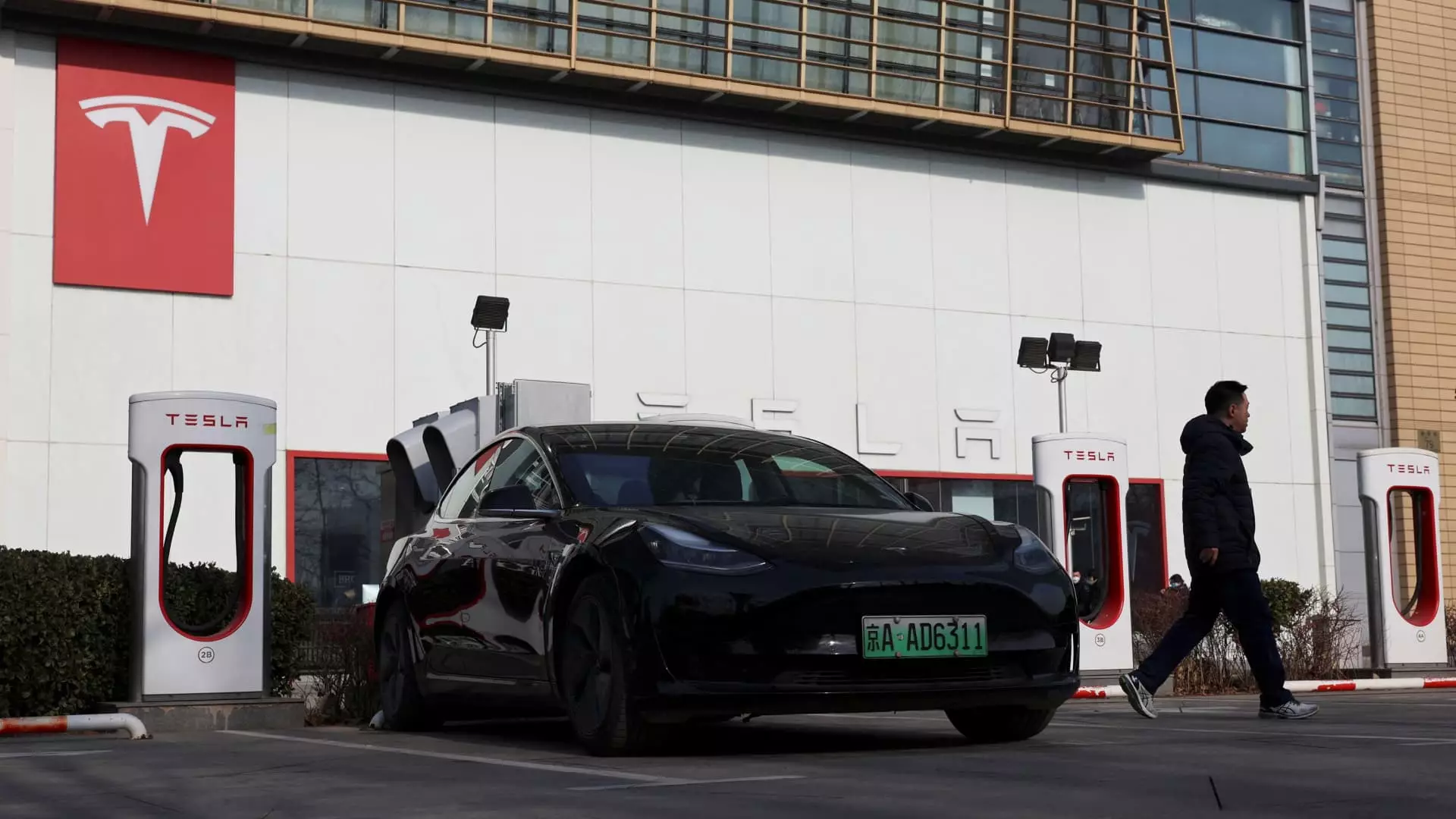The Ascendancy of Local Electric Vehicle Manufacturers in China’s Automobile Market

The automotive landscape in China is shifting more rapidly than anyone could have predicted. As we approach 2025, the market has increasingly favored domestic electric vehicle (EV) manufacturers, signaling a potential exit for many foreign brands that once plied their trade within the world’s largest automotive market. Nomura, a prominent financial services group, has projected that companies such as BYD are poised to bolster their market dominance even further in the coming year, capitalizing on foreign brands’ dwindling foothold.
BYD’s rise in the automotive sector is nothing short of spectacular. As of October 2024, the company captured an impressive 16% share of the entire Chinese auto market—up from 12% in 2023. This significant increase is attributed not only to the company’s aggressive production capabilities but also to its strategic focus on both electric and hybrid vehicles. Notably, BYD’s revenue in the third quarter outpaced that of Tesla for the first time on a quarterly basis, intensifying the competitive landscape.
Despite Tesla’s greater volume of fully electric vehicles sold compared to BYD, the latter’s hybrid offerings make up a substantial portion of its sales mix. This revenue stream has been critical, particularly as the price tier of most BYD models tends to be more accessible than that of Tesla’s offerings. In contrast to BYD’s robust 67% sales surge in November, Tesla saw a decline of 4.3% year-on-year, indicative of changing consumer preferences favoring local brands. Analysts have consistently rated BYD as a strong buy, with analysts projecting a share price target of 375 Hong Kong dollars, reflecting a modest potential upside.
While BYD leads the charge, Geely is also making notable strides in establishing itself as a key player in the burgeoning EV market, securing an 8% market share as of October 2024. Analysts from HSBC have raised their price target for Geely, projecting significant growth in sales and an impressive electric vehicle penetration rate, expected to hit 40%. Notably, Geely’s acquisition of brands like Volvo and its stake in the U.S.-listed electric vehicle company Zeekr have diversified its portfolio, presenting a broader array of products to a market increasingly geared toward electrification.
Geely’s strategy hinges not just on expanding its product offerings but also on the successful introduction of newly launched models that are anticipated to drive sales up to 2.6 million units—a 22% increase from the previous year. This growth trajectory reflects an understanding of consumer demand and a strategic pivot towards sustainable automotive solutions.
In stark contrast to the successes of these domestic manufacturers, traditional automakers, both foreign and domestic, are struggling to adapt to the evolving market dynamics. GM’s recent restructuring efforts with its joint venture, SAIC Motor Corp, underscore the challenges faced by legacy automakers in China. High operational costs and the impending closure of plants paint a grim picture for a company that once thrived in this market. By focusing resources on more successful models and partnerships, GM attempts to realign its strategy in an unforgiving environment where EVs are the future.
With local competitors rising swiftly, those entrenched in traditional car manufacturing must innovate or risk obsolescence. Understanding consumer preferences and integrating new technologies will be paramount in their survival strategies.
Despite BYD and Geely’s commanding positions, several new energy vehicle startups are carving out niches in this vibrant market. The likes of Yongda are working closely with tech giants such as Huawei, which, while not manufacturing vehicles directly, collaborates with established automakers to enhance vehicle connectivity and driver-assistance technology. The expected sales figures for engines running Huawei’s system—potentially reaching one million units in 2025—demonstrate the increasing importance of partnerships in a rapidly evolving landscape.
Moreover, companies like Leapmotor are proving that efficient spending on research and development can yield tremendous benefits, boasting a significantly lower cost per vehicle than their competitors. This frugal innovation not only demonstrates the potential for startups like Leapmotor to disrupt established players but also highlights the critical importance of smart spending amidst fierce competition.
As we approach 2025, China’s automotive market is ripe for transformation, with local brands establishing themselves as leaders in the realm of electric vehicles. The confluence of innovative manufacturing, strategic partnerships, and a discerning consumer base heralds a new era. For global automakers looking to establish a presence in China, the time for a reassessment of strategies is now—adaptation and innovation will be the key differentiators in a market where domestic players are indisputably leading the charge.





